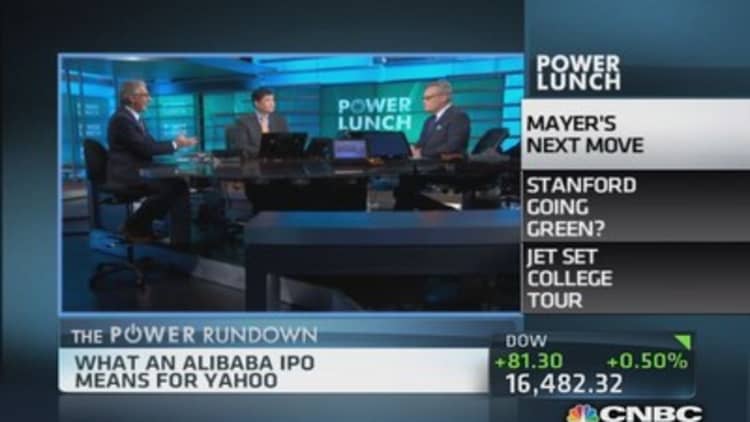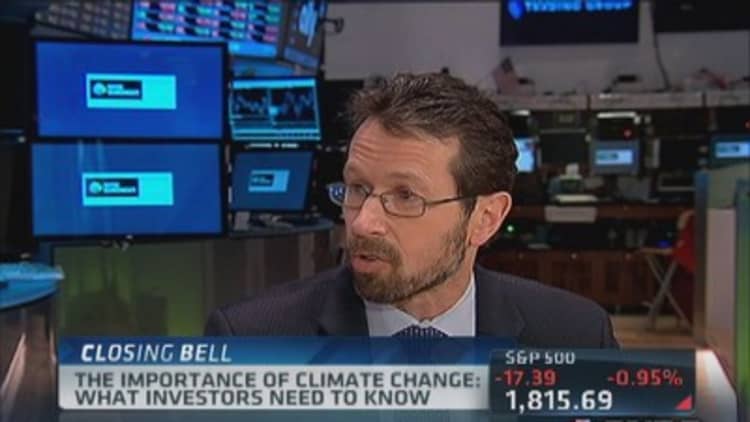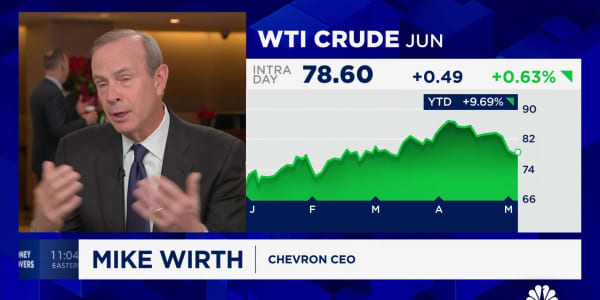Stanford University's recent divestment from coal companies may be a sign of more large investors ditching their fossil fuel exposure—and more taking climate change seriously as a portfolio risk.
"I think we're at a tipping point," Bob Litterman, chairman of the risk committee for $2 billion hedge fund firm Kepos Capital, said Tuesday about the potential for others to copy Stanford's move at the New York Society of Security Analysts' Sustainable Investing Conference in New York City.
"There's going to be a lot of focus in the next couple years on what is the social cost of carbon, how do we create appropriate incentives and, as investors wake up to the fact that this is happening, we're going to see more divestment, more investment in the next generation (of energy)."
Litterman is one of the most senior risk officers on Wall Street. Before joining Kepos in 2010, he spent 23 years at Goldman Sachs. Among other roles, Litterman was head of risk and oversaw the bank's quantitative investment strategies group. He also co-developed the Black-Litterman Global Asset Allocation Model, a widely cited portfolio risk management tool.

Kepos is led by Mark Carhart, who was the co-chief investment officer of the same Goldman Sachs quant investing unit, which managed more than $185 billion at its peak.
Read MoreBlackRock says green investing should be public
Litterman believes an immediate risk that investors should address is the potential for "stranded assets," or energy sources companies will not be able to harvest as the cost of oil, natural gas, coal and other fossil fuels increase from carbon-related taxes.
"It's a risk management issue. Fossil fuel companies aren't evil or bad—they're acting rationally given the wrong incentives. The incentive to emit is not being penalized today," Litterman said during a panel discussion on money management in the face of global warming.
"The risk that investors have in their portfolios is not climate risk, per se, it's the risk that assets will be repriced because appropriate incentives are created globally to conserve on emissions."
Litterman's stranded assets thesis doesn't affect Kepos, a short-term investor that trades frequently based on quantitative computer models. But Litterman has applied the view to the World Wildlife Fund's investment portfolio. He serves on the fund's board.
Through Deutsche Bank, WWF swapped its coal and tar sands-related stocks for returns from the S&P 500 index. The hedge has already worked, producing a net annualized gain of 21.7 percent over the last three years, according to Litterman.

Litterman's warning on risks to energy companies from impending taxes was recently raised by another prominent hedge fund manager, Chris Hohn of The Children's Investment Fund Management.
"If you believe over time a carbon tax is coming—which I do—and if you believe in climate change, 80 percent of the reserves of energy companies can never be extracted. All these oil and gas companies and the coal companies will have stranded reserves, basically," Hohn recently said in an Institutional Investor cover story on investing and climate change.
Hohn has joined forces with hedge funders Jeremy Grantham of $117 billion GMO and Steve Mandel of $27 billion Lone Pine Capital in backing a new Showtime series on global warming, "Years of Living Dangerously."
Read MoreElite hedge funds: Wall Street is missing this one major risk
—By CNBC's Lawrence Delevingne.






